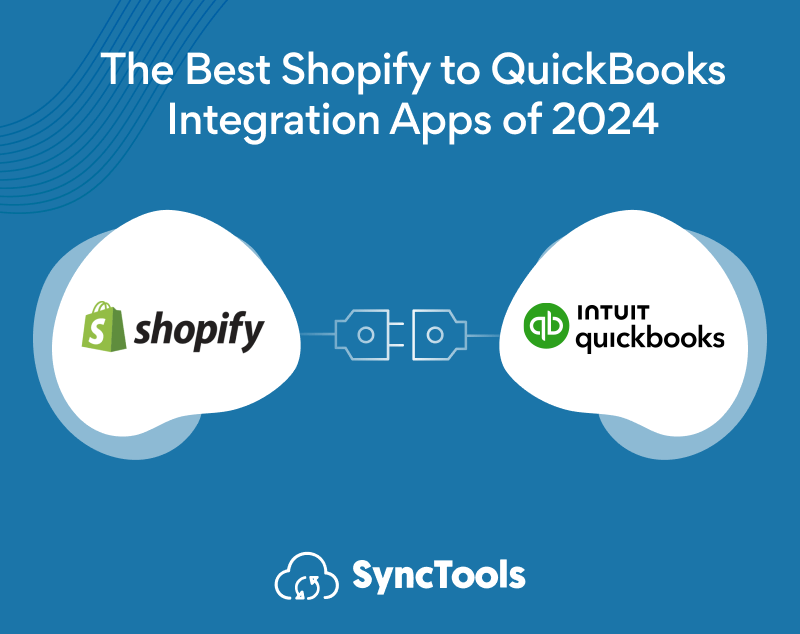In the fast-paced world of ecommerce, efficient management of accounting processes is crucial for the success of your Shopify store. The right QuickBooks integration app can significantly streamline financial management, automate tedious tasks, and provide deep insights into your business performance.
This comprehensive guide details the top Shopify to QuickBooks integration apps available in 2024, helping you choose the best tool to enhance your eCommerce store’s efficiency and profitability.
1. Stock Sync ‑ Qty Update by SKU
Rating: 4.7
Price: Free
Key Features:
Versatile Format Support: Handles various product feed formats including CSV, XML, XLS, XLSX, EDI, and TXT, making it highly adaptable to different data sources.
Multiple Integration Options: Connects with platforms via FTP, email, REST API, Dropbox, and Google Spreadsheet, providing flexibility in how you manage and sync your data.
Automated Inventory Management: Allows for the automation of inventory adjustments, which can be scheduled as frequently as hourly or as infrequently as monthly, ensuring that your stock levels are always up-to-date.
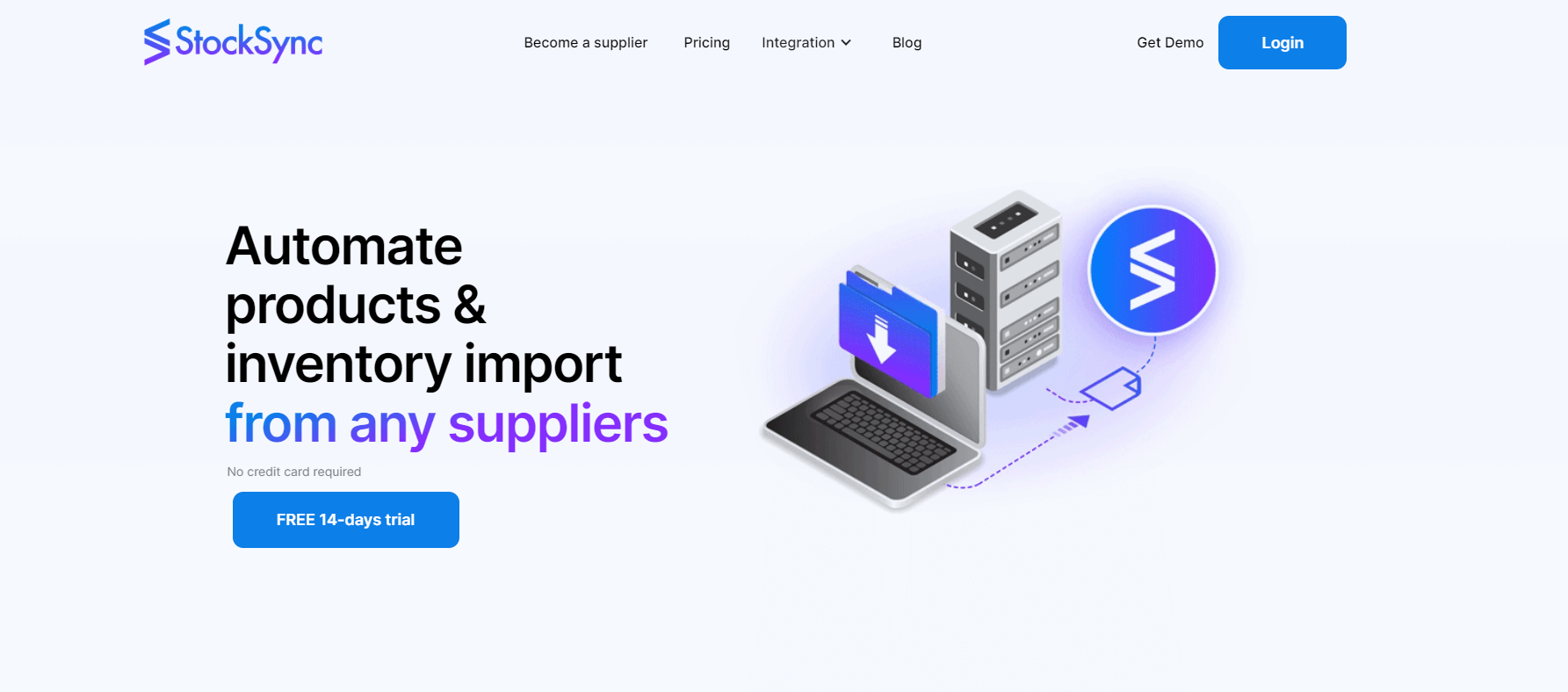
2. SyncTools for Shopify to QuickBooks
Price: Starts at $19/month
Key Features:
- Real-Time Synchronization: Keeps your financial reports up-to-date by syncing sales data, inventory, and customer information between Shopify and QuickBooks instantly.
- Flexible Syncing Options: Offers both manual and automatic syncing capabilities to suit various operational preferences.
- Track COGS and other metrics across all shopify stores: By syncing COGS data from Shopify to QuickBooks integration, you can keep track of the cost of each product sold accurately
- User-Friendly Interface: Features an easy-to-navigate interface that simplifies the setup and ongoing management of the integration.
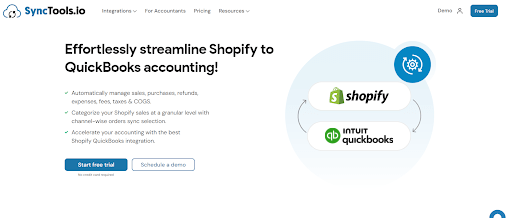
3. QuickBooks Commerce by Intuit
Price: Starts at $39/month
Key Features:
- Comprehensive Stock Administration: Maintains accurate stock levels across multiple warehouse locations to prevent overstocking or stockouts.
- Multichannel Order Management: Manages orders seamlessly across ecommerce, marketplace, and wholesale channels from a single interface.
- B2B Ecommerce Platform: Enables launching of private wholesale channels that integrate directly with your Shopify store, expanding your market reach.
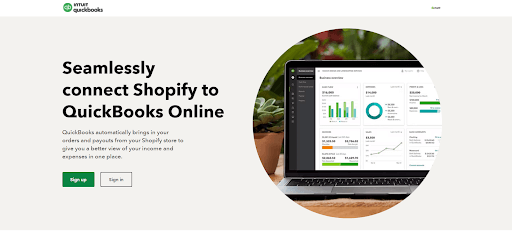
4. QuickBooks Online or Xero Sync by Webgility, Inc.
Rating: 4.8
Price: Starts at $49/month
Key Features:
- Efficient Operations: Streamlines order syncing to push time-consuming tasks to the side, letting you focus more on strategic growth.
- Stress-Free Reconciliation: Ensures accurate end-of-month financials, aligning bank statements with accounts seamlessly and accurately handling tax entries.
- Insightful Financial Control: Offers valuable insights into cash flow, sales, expenses, and overall profitability, enhancing decision-making capabilities.
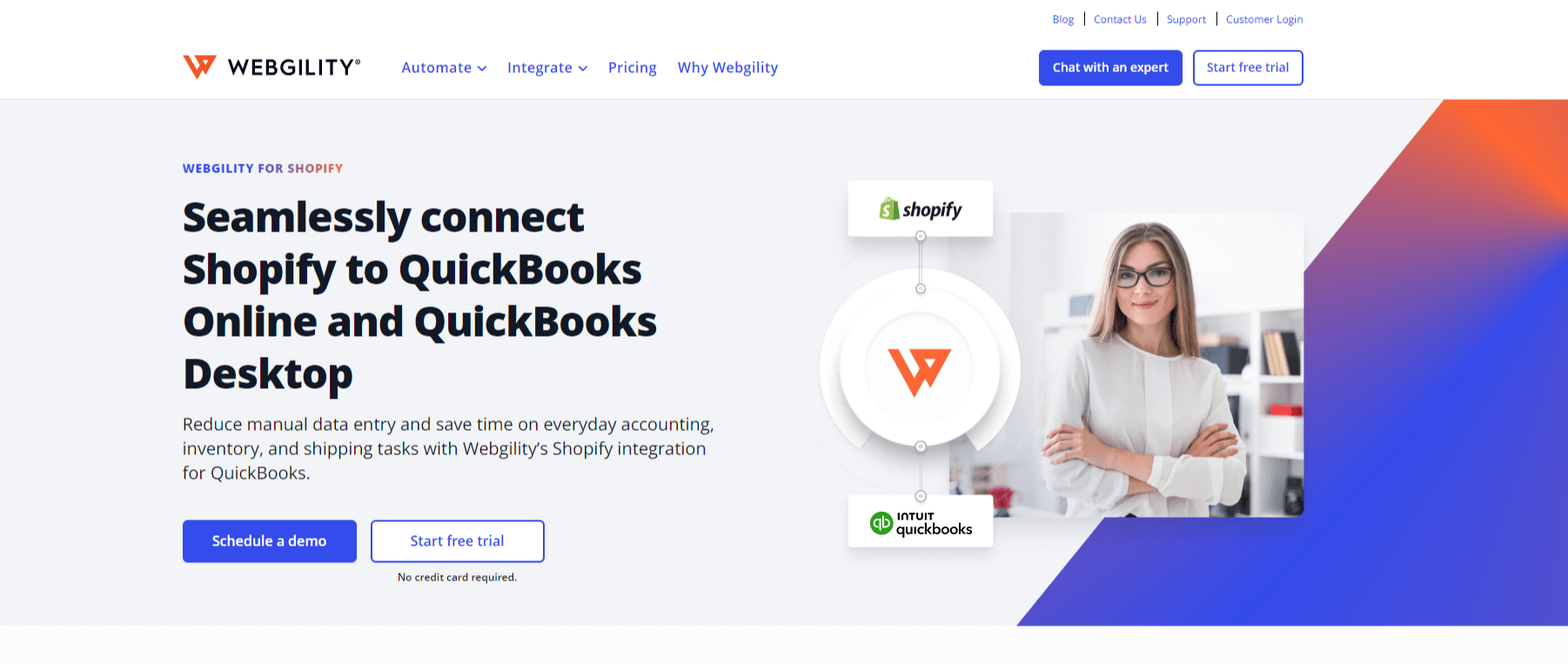
5. Connex for QuickBooks Online by Sync with Connex
Rating: 4.5
Price: Starts at $49/month
Key Features:
- Automated Data Entry: Synchronizes sales, customer information, products, and refunds directly into QuickBooks Online, eliminating manual data entry errors.
- Real-Time Inventory Updates: Ensures that inventory levels on Shopify are immediately updated based on changes in QuickBooks Online, preventing overselling.
- Simple Setup: Quick and easy integration without the need for additional software or plugins, making it ideal for those seeking straightforward solutions.
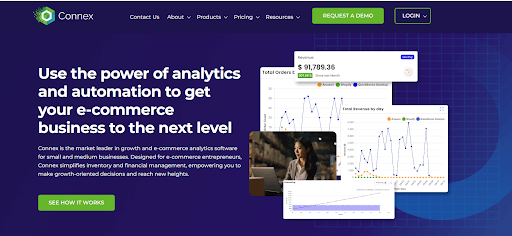
Conclusion
Choosing the right QuickBooks integration app for your Shopify store is a decision that can have significant impacts on your operational efficiency and financial clarity. Each of these apps offers unique features that cater to different needs, from robust inventory management systems to simplified financial reporting tools.
By carefully considering what each app has to offer, you can select a solution that not only meets your current requirements but also supports your business’s future growth. Make sure to leverage the benefits of these integration tools to keep your ecommerce accounting precise, streamlined, and insightful.




